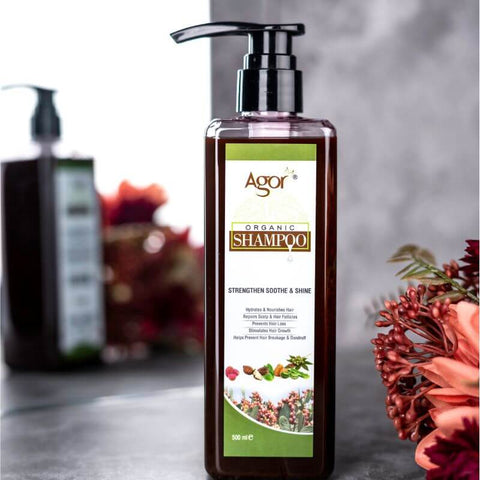How to Keep Your Hair Fungus-Free: A Comprehensive Guide to Prevention and Remedies
March 25 2023 – Ruta Goitom

Fungal infections can occur anywhere on the body, including the scalp. Fungal infections of the scalp can cause itching, redness, and even hair loss. In this article, we will discuss in detail the causes, remedy, and prevention of fungus in hair.
Causes of Fungus in Hair: Fungus in hair is commonly caused by a type of fungi called dermatophytes. These fungi live on the skin and can infect the hair follicles. Other factors that can increase the risk of developing a fungal infection in the scalp include a weakened immune system, hormonal changes, and certain medications.
Poor hygiene and excessive sweating can also contribute to the development of fungal infections in the scalp. Sharing combs or hairbrushes with someone who has a fungal infection can also increase the risk of developing a fungal infection.
Remedy for Fungus in Hair: There are several remedies for fungal infections in hair. The choice of remedy will depend on the severity of the infection and the underlying cause. Some of the most effective remedies include:

-
Antifungal Shampoo: Antifungal shampoos containing ketoconazole or selenium sulfide can be used to treat fungal infections in the scalp. These shampoos work by killing the fungi that cause the infection. They should be used regularly for a few weeks to see results.
-
Tea Tree Oil: Tea tree oil has antifungal properties and can be used to treat fungal infections in hair. It also has soothing properties that can help relieve itching and inflammation. Mix a few drops of tea tree oil with a carrier oil, such as coconut oil, and massage into the scalp. Leave it on for at least 30 minutes before washing it off.
-
Apple Cider Vinegar: Apple cider vinegar has antibacterial and antifungal properties and can be used to treat fungal infections in hair. It can also help restore the pH balance of the scalp, which can help prevent future fungal infections. Mix equal parts of apple cider vinegar and water and apply it to the scalp. Leave it on for at least 30 minutes before washing it out.
-
Garlic: Garlic has antifungal properties and can be used to treat fungal infections in hair. Crush a few garlic cloves and mix with coconut oil. Apply to the scalp and leave it on for at least 30 minutes before washing it off.
-
Probiotics: Probiotics are beneficial bacteria that can help boost the immune system and prevent fungal infections. Eating foods that are rich in probiotics, such as yogurt, kefir, and kimchi, can help prevent fungal infections in the scalp.
Prevention of Fungus in Hair: Preventing fungal infections in hair is much easier than treating them. Here are some ways to prevent fungal infections in hair:
-
Good Hygiene: Maintaining good hygiene is essential to prevent fungal infections in hair. Regularly washing your hair with a good shampoo and avoiding sharing combs or hairbrushes with others can help prevent fungal infections. It is also important to keep your hair and scalp clean and dry.
-
Avoid Excessive Sweating: Excessive sweating can create a moist environment on the scalp, which is ideal for the growth of fungi. Avoid wearing tight hats or headbands and try to keep your scalp dry.
-
Healthy Diet: Eating a healthy diet that is rich in vitamins and minerals can help strengthen the immune system and prevent fungal infections in hair. Foods that are rich in antioxidants, such as fruits and vegetables, can also help protect the scalp from oxidative stress.
-
Keep Your Scalp Clean and Dry: It is important to keep your scalp clean and dry to prevent fungal infections. Avoid using hair products that contain harsh chemicals and always rinse your hair thoroughly after washing. If you have a tendency to sweat a lot, it may be helpful to wash your hair more frequently to keep it clean and dry.
-
Avoid Tight Hairstyles: Tight hairstyles, such as braids and ponytails, can put a strain on the hair follicles and scalp, making it more susceptible to fungal infections. Try to wear your hair down or in loose styles to prevent hair damage and reduce the risk of fungal infections.
Conclusion: Fungal infections in hair can be uncomfortable and even embarrassing, but they are treatable and preventable. Maintaining good hygiene, eating a healthy diet, and using natural remedies can help prevent fungal infections in the scalp. If you do develop a fungal infection, it is important to seek treatment as soon as possible to prevent the infection from spreading and causing further damage. With proper care and attention, you can keep your hair and scalp healthy and free from fungal infections.

0 comments